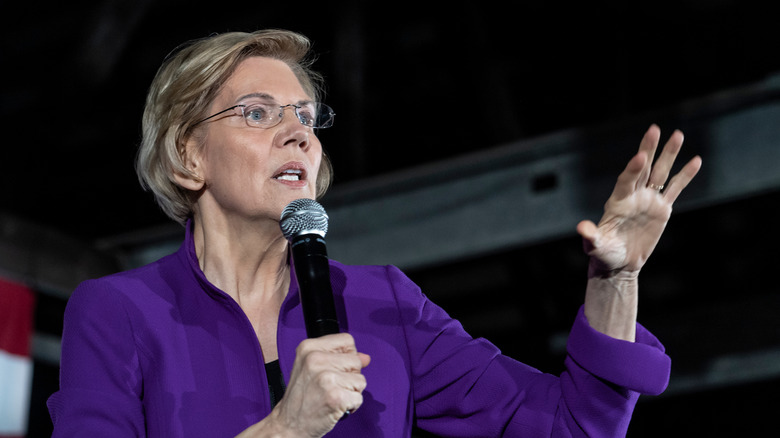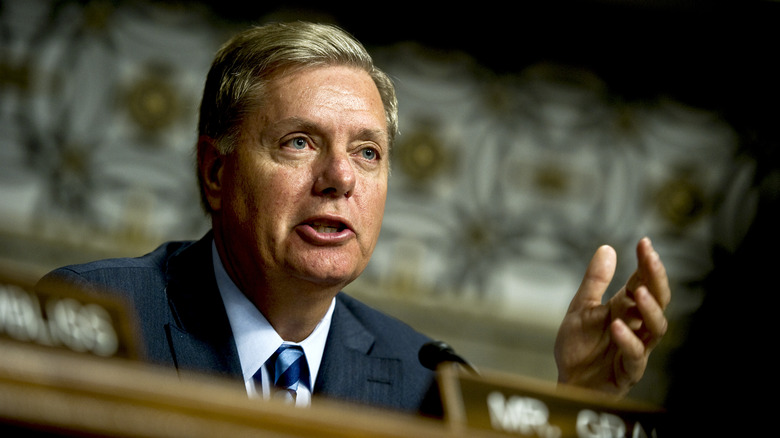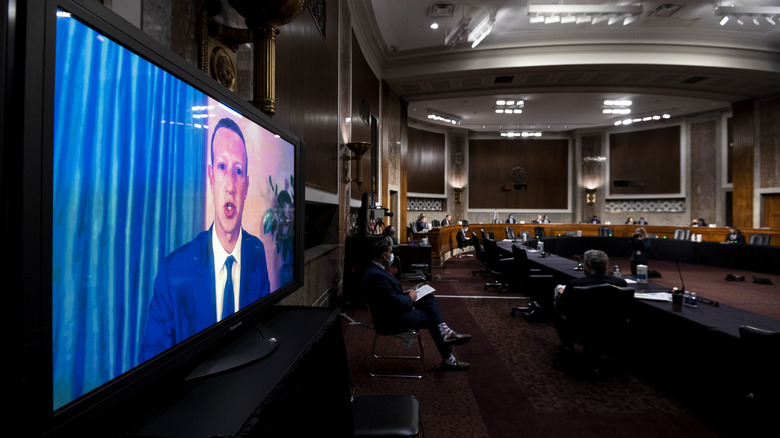US Senators Want A New Agency To Rein In Big Tech And AI
As the saying goes, the enemy of your enemy is your friend, and you know things are serious when two senators from opposite ends of the political spectrum are working together with a shared goal. As reported by CNN, Massachusetts Democrat Senator Elizabeth Warren and South Carolina Republican Senator Lindsey Graham have co-sponsored a bill that directly targets growing social media outlets like Meta and Twitter and monopolistic tech giants like Amazon and Google in hopes of curbing their increasing power and influence with a brand new agency.
Although not directly named in the bill, an unnamed aid explained to the previously mentioned source that this is where concern is sprouting. In addition, issues surrounding the proliferation of artificial intelligence and its impacts are also mentioned in the bill and would be under the purview of the proposed government agency. In a statement regarding the gestating bill, Senator Warren said, "For too long, giant tech companies have exploited consumers' data, invaded Americans' privacy, threatened our national security, and stomped out competition in our economy. This bipartisan bill would create a new tech regulator and it makes clear that reining in Big Tech platforms is a top priority on both sides of the aisle."
Senators Graham and Warren co-wrote a New York Times op-ed in support
Senators Lindsay Graham and Elizabeth Warren also showed their willingness to work together by co-writing an op-ed in New York Times, with one section saying, "Enough is enough. It's time to rein in Big Tech. And we can't do it with a law that only nibbles around the edges of the problem. Piecemeal efforts to stop abusive and dangerous practices have failed."
This bill is being called the Digital Consumer Protection Commission Act, and it would bestow incredible regulatory powers to a new government agency to help protect consumers and their privacy against the free-wheeling actions of big tech. Nobody wants their data sold wholesale, which is certainly highlighted by the fact that two very different ideological political opponents are cooperating.
The reasons for this bill could be two-fold — one being that current mechanisms may be inadequate to control the emerging power of tech companies, which is probably best recognized by the fact that the FTC is currently building an antitrust case against Amazon and has a probe into Google and Apple as well. Second, big tech comes with never-before-seen problems, so a special regulatory body that focuses squarely on these issues might be the best solution — few things are as painful as watching government agents and political operatives that don't understand what they are talking about.
[Featured image by U.S. Navy Petty Officer 1st Class Chad J. McNeeley via Wikimedia Commons | Cropped and scaled | Public Domain]
The new agency would address artificial intelligence as well
Another aspect the Digital Consumer Protection Commission Act addresses is the explosive growth of artificial intelligence, which is doing everything from writing articles to creating images. Many people are particularly concerned about the potential of sentient AI. Artificial intelligence could become a big problem and is one of the main issues in the ongoing writers' and actors' strike.
Lawmakers seem to agree, and PBS noted in May 2023 that Congress was considering a plethora of different rules and regulations to combat big tech and social media's power. Ideas included banning TikTok, data privacy, founding institutes to study artificial intelligence and the best ways to regulate it, and protecting children.
The Digital Consumer Protection Commission Act codifies many of these concepts and wants to create a singular agency to handle anything and everything when it comes to big tech, though there is a focus on e-commerce, social media, and AI. Whether or not this bill will become law is anybody's guess, but it is surely a good sign when people put aside their political differences to work together for the common good. This may be the proverbial canary in the coal mine and a wake-up call for big tech to rein in some of those uncouth practices. The people may have had enough of their unchecked behaviors.


